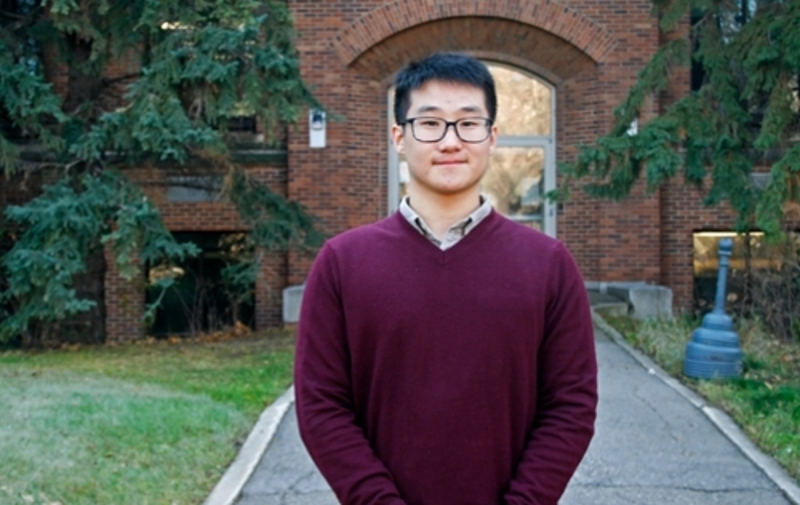
Lecture, Lab, and Life
Undergraduate research student, Mars Zhao, shares his experience working in a lab as a summer Research Assistant.
Hub of Knowledge
I have always seen university as a hub for gaining knowledge, whether through lecturing, discussions, or research. Since starting university, I have experienced the lecturing side of things, but I wanted to explore research as well. I thought it would be awesome if I could employ the knowledge that I gained from lectures to make my own contribution to science.
Since recognizing this desire, I have undertaken research during the summers of 2017 and 2018 under two different supervising professors and in two different fields. Research can involve a rollercoaster of emotions; you end up spending a lot of your time not even researching what you are hoping to do, but rather, troubleshooting errors or setting up a project only to have it fail and having to go back to the drawing board. As you may have guessed, I soon found out that research involves a lot more failure than a lecture or lab where the outcomes are already known. Instead of following directions as you would for a lab assignment, in research it is important to think critically about your work and be creative with your approach to finding solutions. I also found that in research you need to be able to employ your knowledge for discussion rather than only amassing a wealth of knowledge – of course, the latter helps with the former, but by itself knowledge has little value.
Lab of Discovery
From working in laboratories, I have found the most common trouble comes in setting up a good experiment in the first place. For example, my current project involves measuring pH using electrodes, but the process of making accurate, reliable electrodes is the hardest part. Critically thinking about whether or not the results were accurate and reliable, and if not, then thinking of different ways of testing if they were not precipitates, and finally coming up with better electrodes; this process is key to my project’s success. Through working on this project, I have discovered that pH oscillations due to breathing – at least in-vivo porcine tracheas – are quite minimal. This is an important discovery as it suggests that abnormal airway surface liquid (ASL) pH levels do not occur from breathing, which is a regular physiological activity.
Keys to Creativity
To be a good researcher you need perseverance, creativity, and critical thinking. Research involves frequent failures, and so the ability to keep trying new methods while determining potential errors is the key to success. In fact, the biggest lesson that I have learned from this, and previous research projects, is that failure – whether due to random, systemic, or human errors – can be expected in research, and that how you learn and proceed from these errors is what accounts for someone being a “good” researcher. Success is not avoiding errors in the first place. The skills that I have developed through research (i.e., perseverance/resilience, creativity, critical thinking) can be used to improve on anything that I am not comfortable with, or with which I do not have much prior experience. Whenever you want to improve on something difficult, it is important to self-asses your progress and your current approach to come up with different solutions or methods while being steadfast.
Connect to Ideas
While these skills of-- perseverance, resiliency, creativity and critical thinking-- have proven invaluable when I faced failure, research is not just about failure. When things are going well, there are many exciting features that have come along with research for me that feel amazing. For example, my favourite thing about learning is connecting ideas and so it is rewarding whenever I get to use previous knowledge from lectures and apply it practically in the lab. Likewise, when everything about an experiment is running smoothly, the anticipation of getting “good data” gives me a rush of excitement. I have also learned how much I enjoy discussing research with others, whether my or others’ projects. I have found this kind of exchange to be especially true when attending conferences. I love the atmosphere at conferences, where we are full of excitement, as everyone there is sharing something they are really invested in. I have found that I love sharing my research with others, and explaining it to people of varying expertise in the field. Sharing my research has been a valuable way to assess my understanding of a topic. I continually strive to be able to explain what I’m investigating to people regardless of their knowledge level and experience in the field.
It might sound obvious, but if you’re an undergraduate looking to get involved in research, I think the best way to get started is to just reach out to a professor. Whether it is after a lecture or during office hours, just talking to professors is a great way to learn more about their research and potentially broker a future research opportunity with them as your supervisor. Though it might be intimidating, I advise students to try to keep in mind that most professors are passionate about research and are therefore usually happy to discuss it with interested students!

